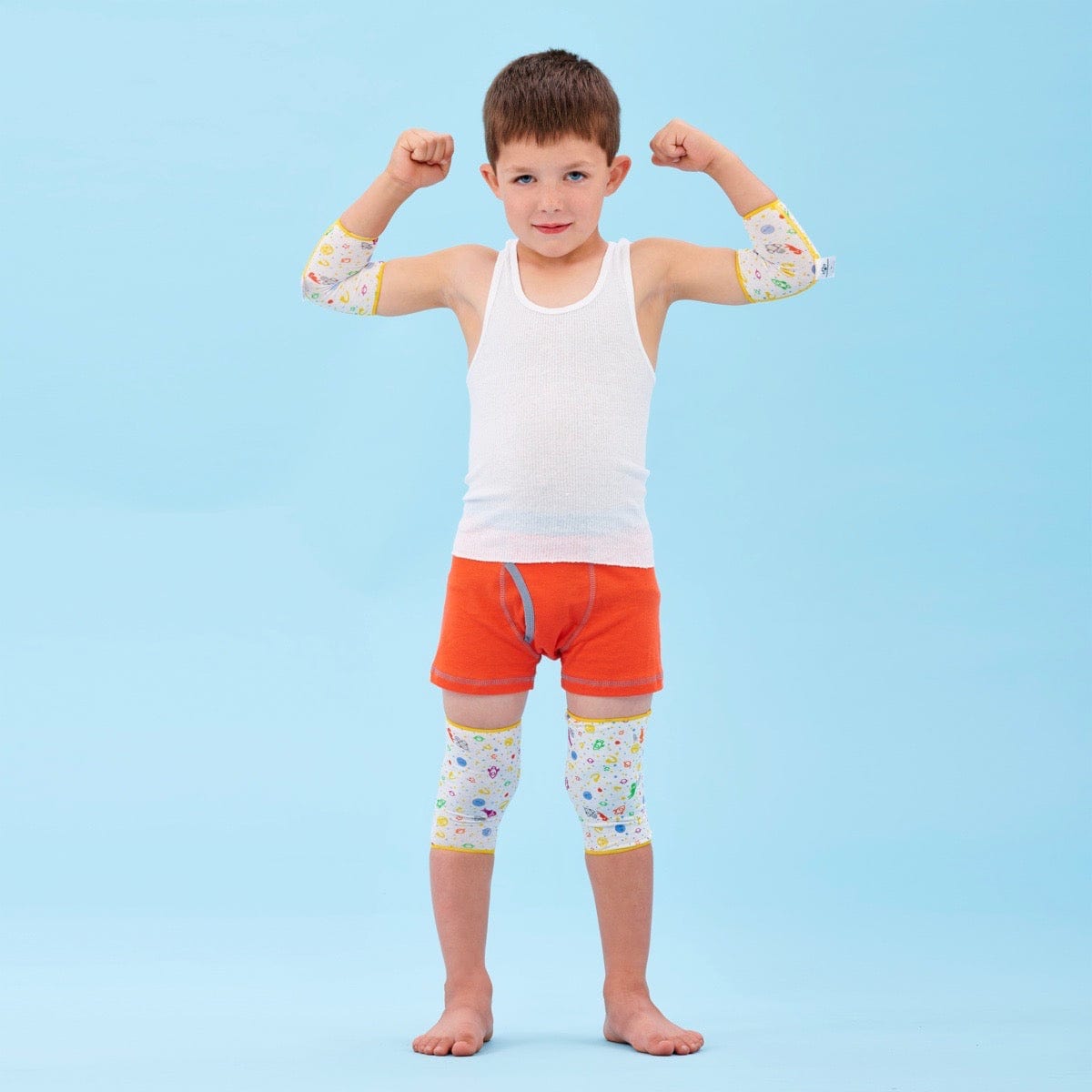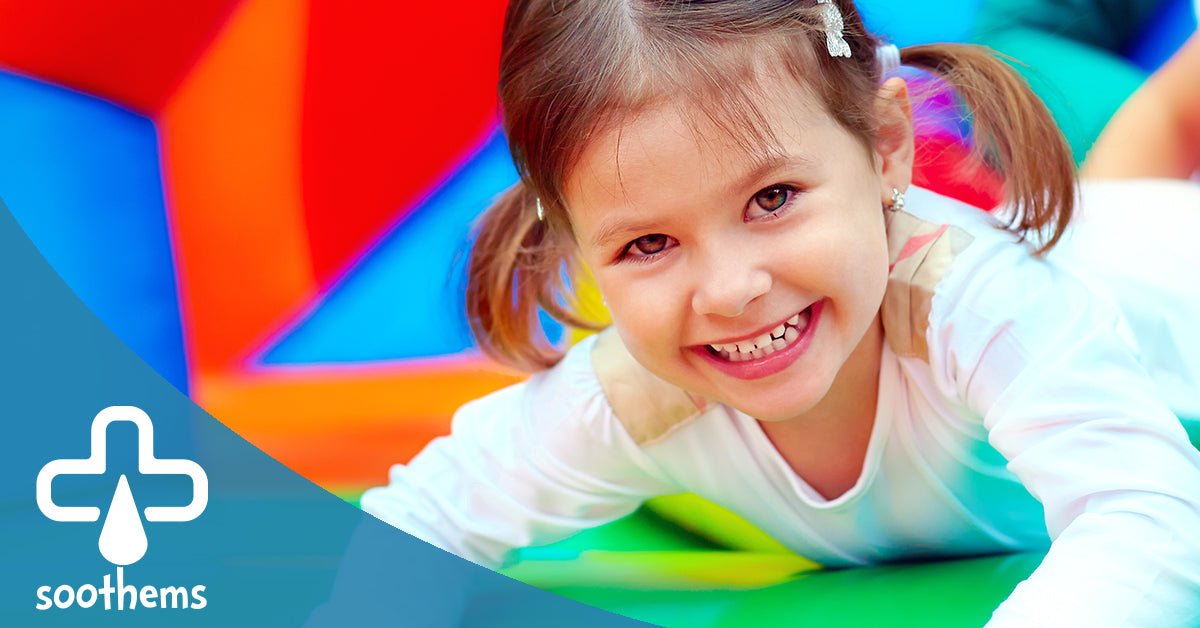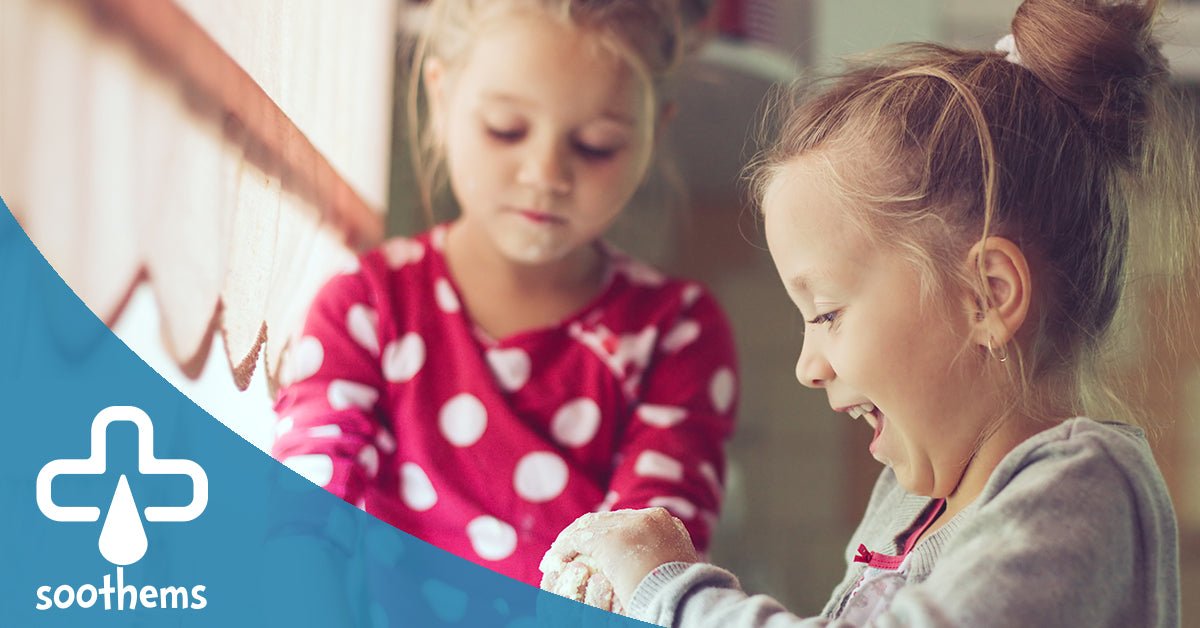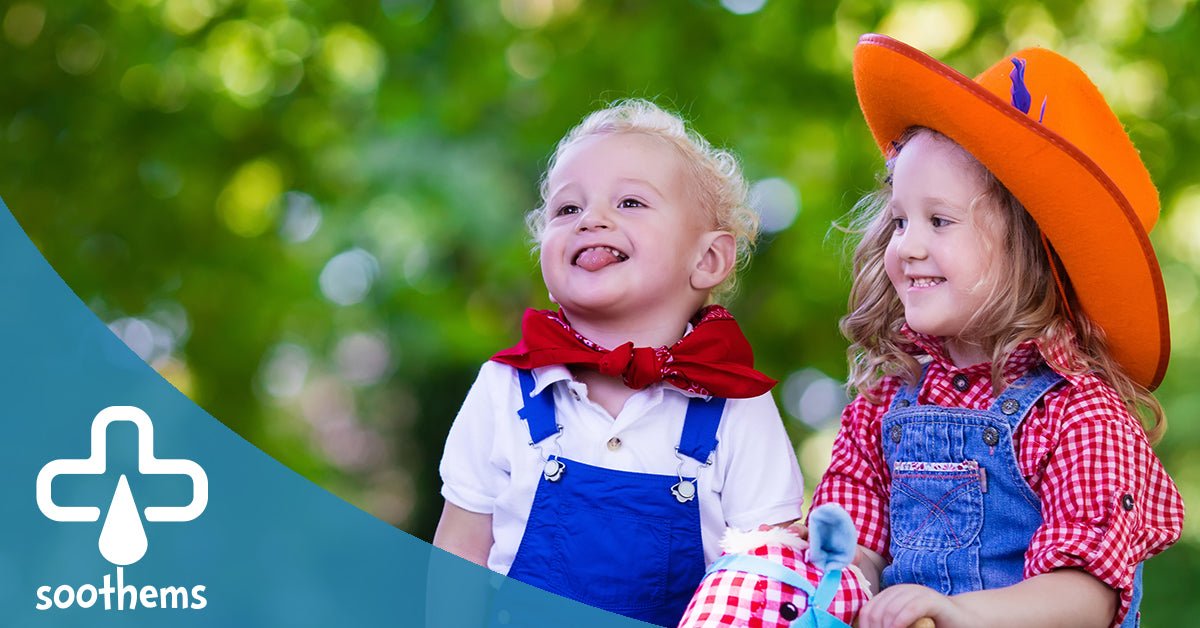With October being Eczema Awareness Month, the National Eczema Association is emphasizing both mental and physical health. Parents of children with the condition tend to be so focused on managing the pain that they rarely think about their son or daughter’s mental health. The reality is that your child might be ashamed, embarrassed, or self-conscious of their skin. It’s possible that they even struggle with confidence at school. As a parent, you constantly worry about what caused a certain outbreak or whether a certain product will yield good results. But there’s so much more to managing eczema than this. In this blog post, we will look at how eczema affects mental health.
Understanding how your child really feels - Skin condition experts confirm that those with eczema have a higher risk for depression, anxiety, and stress. The NEA explains this is due to the way their bodies communicate with their brains during an inflammatory response. What do we mean by this? Well, let’s first remember that our skin is the body’s largest organ. Once our skin becomes inflamed, it makes our brains aware of that inflammation through sensations of pain, heat, itch, and overall discomfort. Dr. Charles Raison, who is looking specifically at inflammation and the development of depression in response to illness and stress, says, “Conditions like atopic dermatitis are associated with inflammation in the skin, and the skin has powerful neuro-connections with the brain. We know that inflammation can talk to the brain, making us feel anxious, depressed, tired and foggy thinking.” In turn, Dr. Raison justifies the notion that someone with eczema is at an increased risk for depression, stress, and/or anxiety. The professor goes on to say, “If your skin is involved in AD and you feel embarrassed, ashamed, or self-conscious, these are huge producers of depression. Those feelings are also very stressful.” With all this in mind, it’s imperative to regularly discuss with your child how they’re feeling both mentally and physically.
Fortunately, there are some lifestyle changes your child can employ to help reduce their body’s inflammation and limit any feelings of stress, anxiety, and depression. Here are some tips to avoid trigger factors of eczema:
- Keep the skin barrier intact - Now’s the time to establish good moisturizing habits with your child. After they’re done bathing in the evening, apply moisturizer on top of any medicine they may have. Do your best to find one that’s a thick cream or ointment. Keep in mind that some children do better with fragrance-free products, so you may want to opt for petroleum jelly to start.
- Wear soft, breathable clothes - Even with colder weather approaching, make it a point to steer clear of heavy fabrics, such as nylon, in addition to other stiff material. Rest assured that the garments at Soothems have been developed to help those with particularly sensitive skin. The smart fabric of Soothems helps reduce itchiness by protecting the skin’s moisture levels, controlling bacterial growth, and soothing the skin during the recovery process. Best of all, our TEWLTect smart fabric made from TENCEL with Chitosan and Zinc Oxide offers ultimate comfort because the yarns are soft, pliable, symmetrically rounded, smooth, breathable, and friction-free to reduce chafing.
- Keep cool - During flare-ups, we recommend that your child reduce exertion. On top of that, be sure that they layer clothing properly and adjust to temperature change. Your child’s bedroom should be comfortable, yet cool. In terms of clothing, consider light bedclothes from Soothems. The cellulose fibers in our skin smart fabric have been independently tested showing they will absorb 50 percent of their own weight in moisture before feeling damp, making them a much better choice than cotton, polyester, nylon, and silk. Simply put, our therapeutic clothing for eczema helps regulate body temperature for greater comfort and can stop skin irritation in its tracks.
- Be systematic if you suspect a food allergy - The more common ones include eggs, milk, peanuts, wheat, and seafood. That said, not all food allergies are the same. So keep a food journal and jot down anything you suspect may be causing itchiness or redness. One more important note here: Don’t exclude more than one food group at the same time, as your child can become malnourished with prolonged avoidance of many foods. Work with your child’s physician when performing food manipulation.
- Help your child cope with stress-causing events - Much of the challenge in treating eczema is the trial and error that comes with it. What works for one child may not work for yours. As aforementioned, it’s easy for parents to get caught up searching for the next best product or treatment. But don’t undervalue the importance of just sitting down and talking with your child about how they feel. If necessary, review any issues with their doctor or a mental health professional.
Eczema Clothing and More
At Soothems, we don’t just sell eczema clothing. We take a more all-encompassing approach instead. Soothems storybooks are written to be paired with our smart fabric garments which ease the discomfort of your child’s sensitive skin flare-ups. We hope that the combination of having your child wear our products with the special disappearing prints and reading them one of our books will delight and comfort your child into a more restful night’s sleep.
From eczema suits and eczema sleeves to eczema sleepwear and eczema bottoms, see what Soothems can do for your child. This innovative fabric therapy can work wonders. Please don’t hesitate to contact us if you have any questions regarding our products.







Leave a comment
All comments are moderated before being published.
This site is protected by hCaptcha and the hCaptcha Privacy Policy and Terms of Service apply.